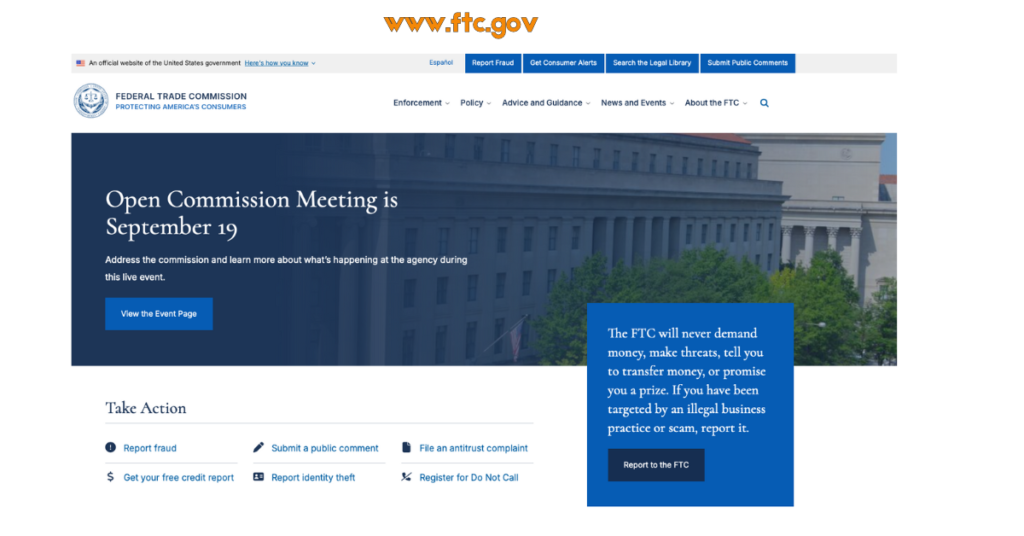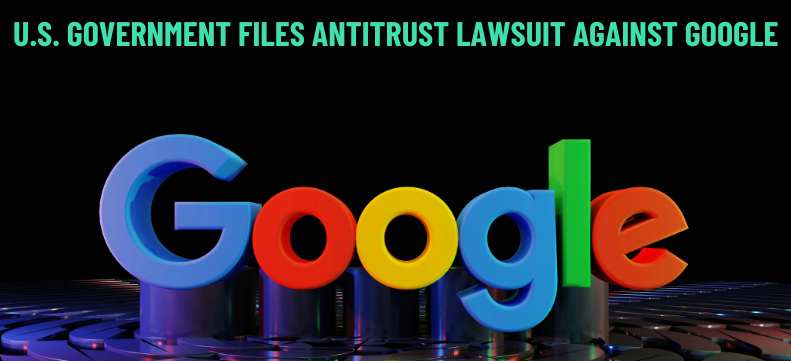
Introduction
The United States government has launched a major antitrust lawsuit against Google, marking a pivotal moment in the tech giant’s history. The case, filed by the Department of Justice (DOJ) in conjunction with several states in January 2023, accuses Google of monopolistic practices that harm competition and innovation. The trial began on September 9, 2024 (Monday- 5 days ago).
The suit focuses on Google’s online search and search advertising dominance, claiming that the company uses its market power to stifle competition and maintain its monopoly.
The lawsuit could have profound implications for Google and the entire tech industry. It echoes past antitrust actions against Microsoft and signals a renewed effort by U.S. regulators to curb the power of Big Tech. The outcome of this case could reshape the digital landscape and impact how we use the internet in the future.
Antitrust Laws
Antitrust law was first enacted in the United States in 1890 by with the passage of the Sherman Antitrust Act. This law was designed to combat monopolies and ensure fair competition in the marketplace by prohibiting business practices that restrained trade or led to monopolization.
Definition of Monopoly
A monopoly is a market structure where a single company or entity dominates an industry or sector, often to the exclusion of any significant competition. In a monopoly, the company controls the supply of a particular product or service, giving it the power to set prices and terms without concern for competitors. This can lead to reduced consumer choices, higher prices, and less innovation.
The Sherman Antitrust Act was later supplemented by two additional laws:
- The Clayton Antitrust Act (1914) – This act addressed specific practices that the Sherman Act did not explicitly cover, such as mergers and acquisitions that could lessen competition.
- The Federal Trade Commission Act (1914) – This created the Federal Trade Commission (FTC) to enforce antitrust laws and prevent unfair competition. It was enacted in 1914 under President Woodrow Wilson, prohibits unfair competitive practices and activities that negatively impact commerce.
The Antitrust Division is responsible for upholding federal laws that promote fair competition. These laws prevent actions and mergers that limit competition, ensuring that consumers, taxpayers, and workers benefit from a competitive marketplace.
Antitrust laws also prohibit companies from working together or forming cartels to restrict competition, such as indulging in price fixing. Given the challenges in determining which actions might restrict competition, antitrust law has developed into its specialized legal field.
Wha
Key Allegations Against Google
At the heart of the lawsuit is Google’s dominant position in the search engine market. According to the DOJ, Google controls roughly 90% of all online search activity, with similar dominance in search advertising. The government argues that this stranglehold was maintained through illegal practices, including:
- Exclusive Agreements: Google allegedly struck deals with companies like Apple to ensure it remained the default search engine on devices such as the iPhone and iPad.
- Anti-Competitive Practices: Google is accused of engaging in tactics that prevent rivals from growing their share of the search market, essentially freezing competition.
- Advertising Monopoly: The lawsuit claims Google’s control over the digital advertising ecosystem enables it to favour its products, forcing businesses to use its services at unfair prices.

Google’s Response
What arguments has Google presented in its defence during the trial?
Superior Product: Google denies the allegations, arguing that its dominance is the result of a superior product, not unfair practices.
Consumer Choice: The company insists that users choose Google because it offers the best search results, not because of a lack of alternatives. Google also points out that consumers can easily switch to competitors like Bing, Yahoo, or DuckDuckGo if they prefer.
Competitive Agreements**: Google defends its agreements with companies like Apple and Mozilla, stating that these partnerships are based on the merit of its search engine and not on anti-competitive practices
Additionally, Google claims that its advertising model benefits businesses and consumers by delivering more relevant ads and reducing costs for advertisers.
Potential Outcomes of Antitrust lawsuit against Google
The stakes in this lawsuit are enormous. If the government prevails, it could lead to significant changes in how Google operates. Potential remedies include breaking up parts of the company, such as separating its search engine from its advertising business. Alternatively, Google could face strict regulations to prevent it from using its market dominance to crush competitors. However, these types of cases can drag on for years, and Google may settle with the government before any drastic measures are imposed.
Potential risks of breaking up Google
Breaking up Google could lead to various risks and challenges. Here’s an overview of potential issues:
- Service Disruption: Google’s products are deeply interconnected, offering a seamless experience. A breakup could disrupt this, resulting in a fragmented and less user-friendly experience.
- Less Innovation: Google’s large-scale investments in research and development fuel innovation. Dividing the company could reduce its ability to fund groundbreaking technologies, potentially slowing the pace of advancements in the industry.
- Increased Complexity: Splitting Google into smaller entities might create inefficiencies. Businesses and advertisers may have to manage multiple platforms, complicating their operations and increasing costs.
- Legal and Regulatory Hurdles: The process of breaking up Google would be legally complex and could result in prolonged legal battles. Ensuring that the new companies remain competitive and sustainable could also be challenging.
- Possible Changes to Free Services:
Implications for the Tech Industry
The lawsuit is part of a broader trend of increased scrutiny at Big Tech companies. Alongside Google, companies like Facebook, Amazon, and Apple have also faced antitrust investigations and legal challenges in recent years. Critics argue that these companies have grown too powerful and are stifling competition in the digital marketplace. If Google is forced to change its business practices or break up its operations, it could set a precedent for future actions against other tech giants.
Are there any historical precedents for this kind of action?
There are historical precedents for breaking up large companies to address monopolistic behaviour. Here are a few notable examples:
Standard Oil (1911)
The U.S. government broke up Standard Oil, owned by John D. Rockefeller, due to its monopolistic control over the oil industry. The Supreme Court ruled that Standard Oil had violated antitrust laws, leading to the company being divided into 34 smaller, independent companies. The case is often cited as a landmark in antitrust regulation.

AT&T (1982)
In one of the most famous antitrust cases, the U.S. government ordered the breakup of telecommunications giant AT&T. The antitrust lawsuit against AT&T was filed in 1974, but the breakup was ordered in 1982 and completed in 1984. The company had a monopoly over telephone services, and the breakup resulted in the creation of several regional companies, or “Baby Bells.” This action is credited with opening up the telecom industry to competition and innovation.
Microsoft (2000)
The U.S. government pursued an antitrust case against Microsoft, accusing the company of using its dominance in the PC operating system market to stifle competition. While Microsoft did not ultimately break up, the case led to significant changes in how the company operated, especially concerning its business practices and competition in the software industry.
The antitrust case against Microsoft was filed in 1998, and the initial ruling was in 2000. However, the final settlement and changes to Microsoft’s business practices were implemented in 2001.
Microsoft doc. file of the lawsuit: Click here
Regulators of the Antitrust Law
In the United States, antitrust laws are regulated by two main federal agencies:
- The Federal Trade Commission (FTC) – The FTC is responsible for enforcing laws that prohibit unfair competition and deceptive practices in commerce. It investigates business practices and reviews mergers and acquisitions to ensure they do not harm consumers or competition.

- The Department of Justice (DOJ) Antitrust Division – The DOJ enforces antitrust laws through criminal and civil cases, particularly in industries where anti-competitive practices might harm the market. It has the power to block mergers and prosecute companies that violate antitrust laws.

NB: Both agencies work together to promote fair competition and protect consumers from monopolistic practices.
Conclusion
The Google antitrust lawsuit centers around allegations that Google has engaged in anti-competitive practices to maintain dominance in online search and advertising. U.S. regulators argue that Google unfairly restricts competition by establishing exclusive agreements with device manufacturers, making it the default search engine on many platforms. Google defends its business model, stating that its practices benefit consumers by providing efficient services. The outcome of this case could have significant implications for the future of antitrust enforcement in the tech industry, potentially leading to changes in how tech giants operate and compete.
References:
- United States Department of Justice (DOJ)
- Federal Trade Commission (FTC)
https://www.ftc.gov/advice-guidance/competition-guidance/guide-antitrust-laws
- The New York Times
https://www.nytimes.com/2024/09/09/technology/google-antitrust-ad-technology.html
https://www.nytimes.com/2024/09/09/technology/google-antitrust-trial-legal-scorecard.html
- The Wall Street Journal
https://www.wsj.com/tech/google-antitrust-trial-ads-doj-7d3ad336
https://www.wsj.com/tech/google-loses-federal-antitrust-case-27810c43
Frequently Asked Question (FAQs)
1. What is the Google antitrust lawsuit about?
The lawsuit claims that Google uses anti-competitive tactics to maintain dominance in online search and advertising markets.
2. How has Google responded to the lawsuit?
Google argues that its services benefit consumers, asserting that users choose its products because they are efficient, not because of forced exclusivity.
3. What could happen if Google loses the lawsuit?
If Google is found to have violated antitrust laws, it may face fines, regulatory restrictions, or structural changes to its business operations.
4. How does this lawsuit impact consumers?
The case could reshape competition in the tech sector, potentially giving consumers more options for search engines and online services.
5. Why is the Google antitrust case important?
It represents a pivotal moment in regulating the power of big tech companies, potentially setting new standards for competition in digital markets.


Mitolyn I really like reading through a post that can make men and women think. Also, thank you for allowing me to comment!
Thanks
Nice post. I learn something totally new and challenging on websites
Thanks.
I’m often to blogging and i really appreciate your content. The article has actually peaks my interest. I’m going to bookmark your web site and maintain checking for brand spanking new information.
Thank you boss
Pretty! This has been a really wonderful post. Many thanks for providing these details.
Thanks